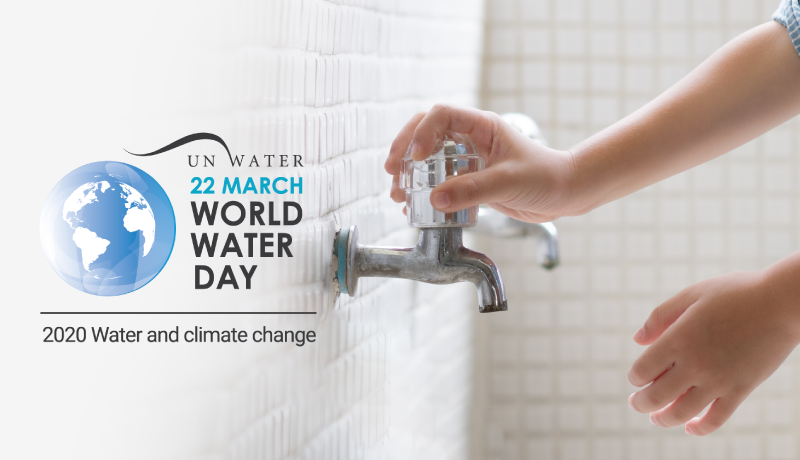Singapore’s water industry contributes over SGD 300 million to the economy each year and continues to experience strong growth. Amid growing risks of climate change and disease, Singapore leads the way in creating innovations around the challenges facing cities all over the world. Kayleigh Regan, Team lead of water sector recruitment from LVI Associates has shared her vision on World Water Day.
Why is World Water Day important to me?
It is a day that we can appreciate and realise how much time and work goes into providing water to the World. Before joining LVI Associates and speaking to professionals in the water sector, I did not realise how much goes on behind the scenes to treat water and have it distributed for use. The work that is done in the background is so not only very extensive but also requires very intelligent people. And this day (World Water Day) really does recognise those that are part of this.
Is Singapore the hub for Water Technology innovation?
There is no doubt that Singapore is the hub for Water Technology innovation. There are many well-respected professionals and experts from all nationalities working in the country and they are very passionate about what they do. We continue to see companies from all over the globe entering the Singapore market, with some even making Singapore their new headquarters. From what we see, the business does not seem to be slowing down. With new technologies consistently being innovated from Singapore, I do think it will continue to be the hub for water technology for years to come.
Read our recap on panel discussions with water sectors market experts at Embracing Water Sustainability 2019 event.
The water sector is on track to meet its 2020 targets, including generating 15,000 jobs. With the amount of technology being produced and the number of companies currently in or entering the market, I expect the sector to exceed its goals for employment growth. I have no fear that the water market will continue to grow, particularly due to the increasing needs across developing economies in other parts of Asia Pacific. Vietnam, Thailand and Indonesia are all perfect examples of countries where the need for treated water will increase. They will all be looking to Singapore to make this happen.
By 2060 Singapore’s water demand could almost double according to the Public Utilities Board (PUB). We need to plan and implement water infrastructure to cope with this increasing demand. We need to secure affordable, clean water for all citizens. This cannot happen without people. Singapore’s water sector must continue to invest in attracting and retaining the very best talent to remain leading from the front. And this is something where I can bring my expertise to help companies secure people with the right skills and experience to converts these goals into reality.
What can we do to help the Water sector meet its talent goals?
I feel that as recruiters we can play a large part in helping the Water sector grow and be recognised. We take on the responsibility to market and advertise the Water sector to make people aware of the opportunities that are available within it. As recruitment experts in this industry, we can speak to people in other industries and share insights with them on the benefits of being part of a sector that literally changes the world. A great present-day example of this is that a lot of companies are looking to move into the Digital space, and it is a great area that we can be of benefit in. We can approach those in the Digital sector and give them the information they need to understand that Water is an amazing growth market where there is a lot of opportunity.
Get in touch with us
Kayleigh Regan is the team lead for Forensics Engineering, Construction Claims & Water sector at LVI Associates. She and her team focus on hiring micro-niche technical water professionals across the Asia Pacific region. Speak to Kayleigh if you are looking to hire.
If you are looking for a new opportunity in the water sector, submit your CV to us. Visit our latest opening for the water sector across the Asia Pacific region
